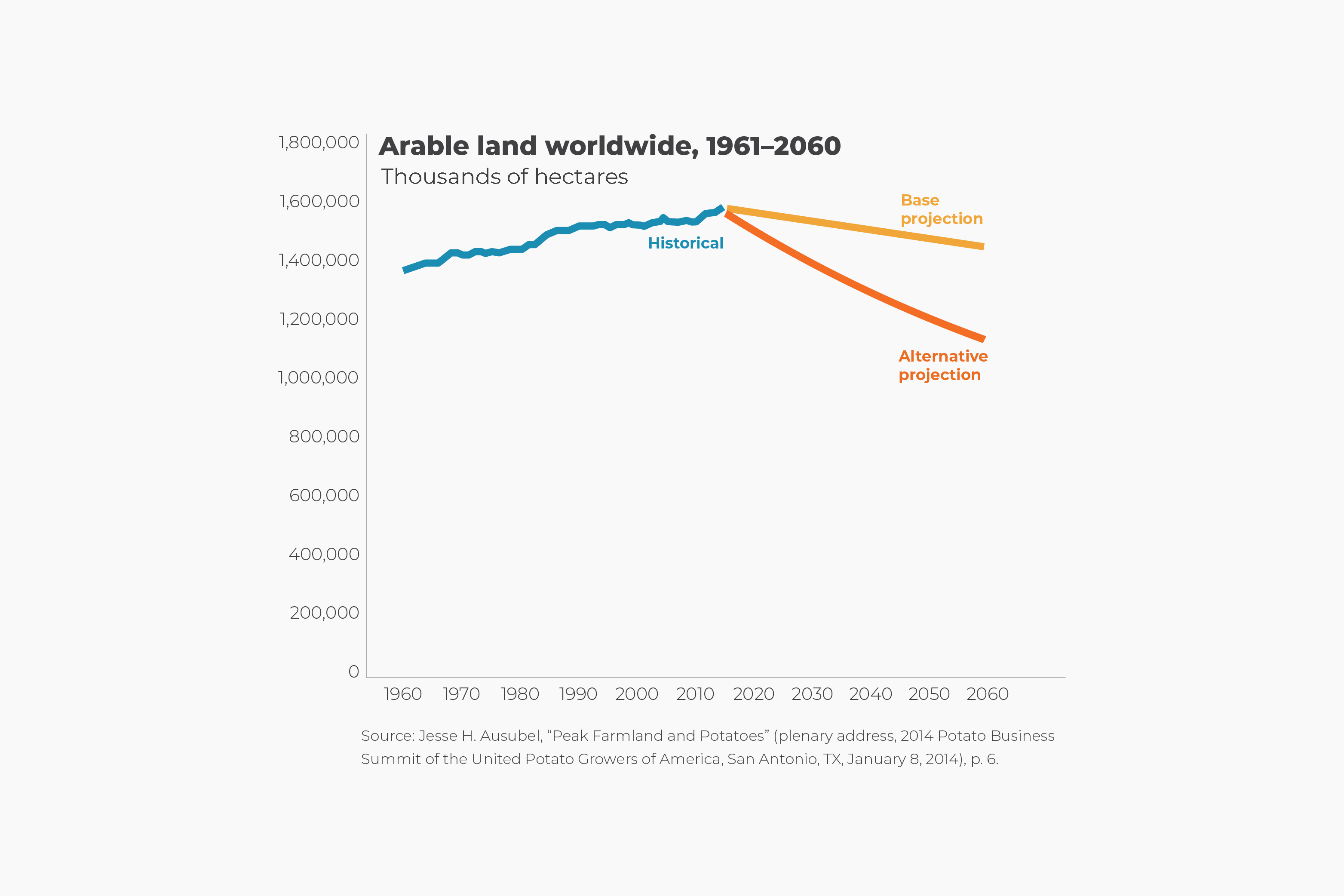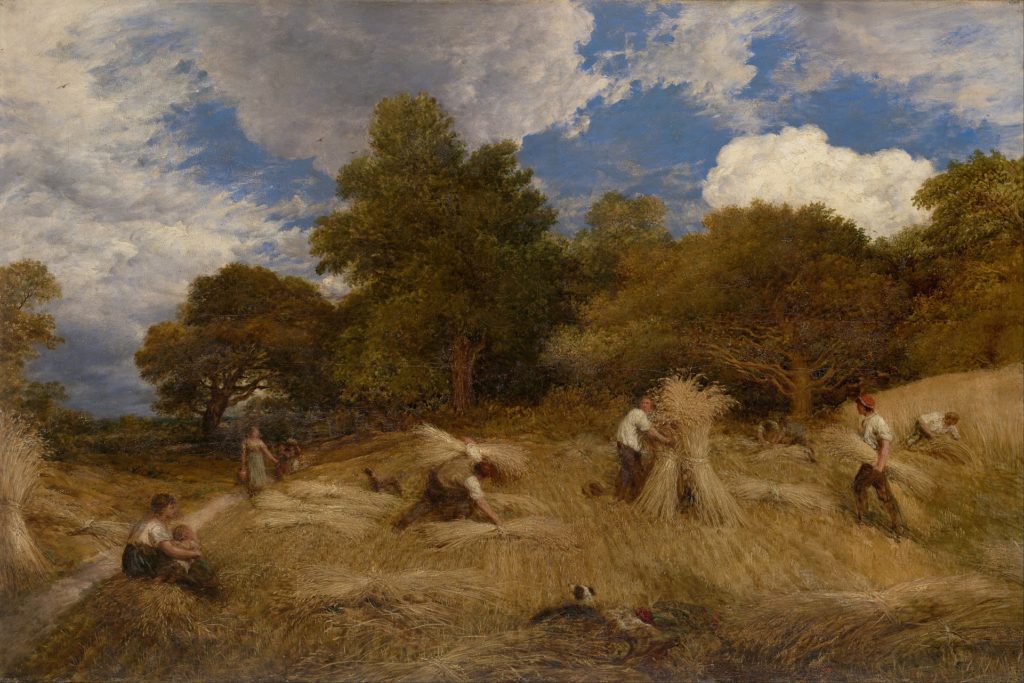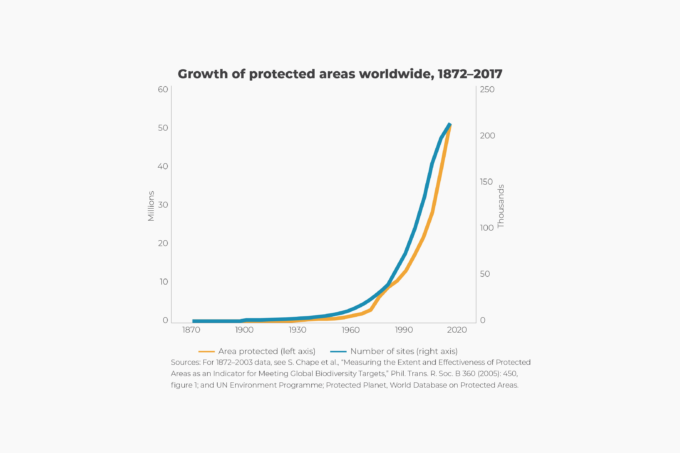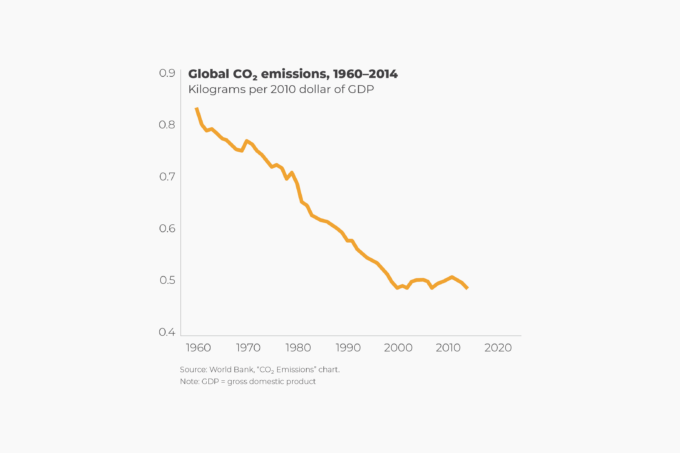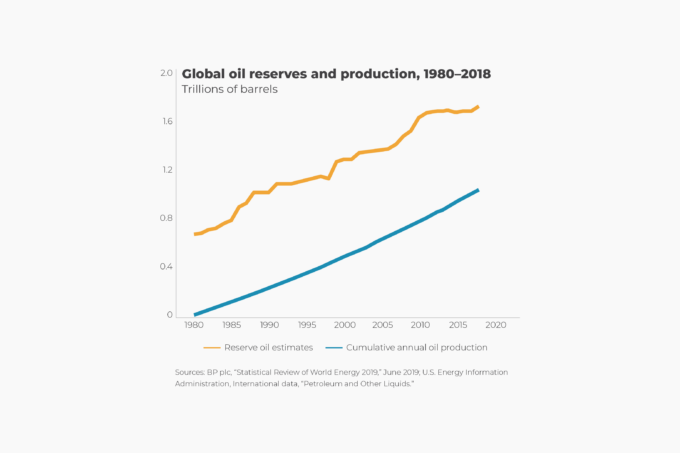Considering that agriculture is the most expansive and intensive way in which people transform natural landscapes, the good news is that the amount of land globally devoted to food production may soon begin falling as population growth slows and agricultural productivity increases. “We believe that projecting conservative values for population, affluence, consumers, and technology shows humanity peaking in the use of farmland,” argues Jesse Ausubel, director of the Program for the Human Environment at Rockefeller University, and his colleagues in their 2013 article “Peak Farmland and the Prospect for Land Sparing.”
Crops were planted on 1.371 billion hectares (3.387 billion acres) globally in 1961. That rose to 1.533 billion hectares (3.788 billion acres) in 2009. Ausubel and his coauthors project a return to 1.385 billion hectares (3.422 billion acres) in 2060, thus restoring at least 146 million hectares (360 million acres) to nature. This is an area two and a half times that of France, or the size of 10 Iowas.
Although cropland has continued to expand slowly since 2009, the UN Food and Agriculture Organization reports that land devoted to agriculture (including pastures) peaked in 2000 at 4.915 billion hectares (12.15 billion acres) and had fallen to 4.828 billion hectares (11.93 billion acres) by 2017. This human withdrawal from the landscape is the likely prelude to a vast ecological restoration over the course of this century.
Under a slightly more optimistic scenario in which people choose to eat somewhat less meat, and in which the demand for biofuels falls, Ausubel and his colleagues project that an additional 256 million hectares (633 million acres) would be spared from the plow. That would mean nearly 400 million hectares (988 million acres) restored to nature by 2060, an area almost twice the size of the United States east of the Mississippi River. The researchers conclude, “Now we are confident that we stand on the peak of cropland use, gazing at a wide expanse of land that will be spared for Nature.”

